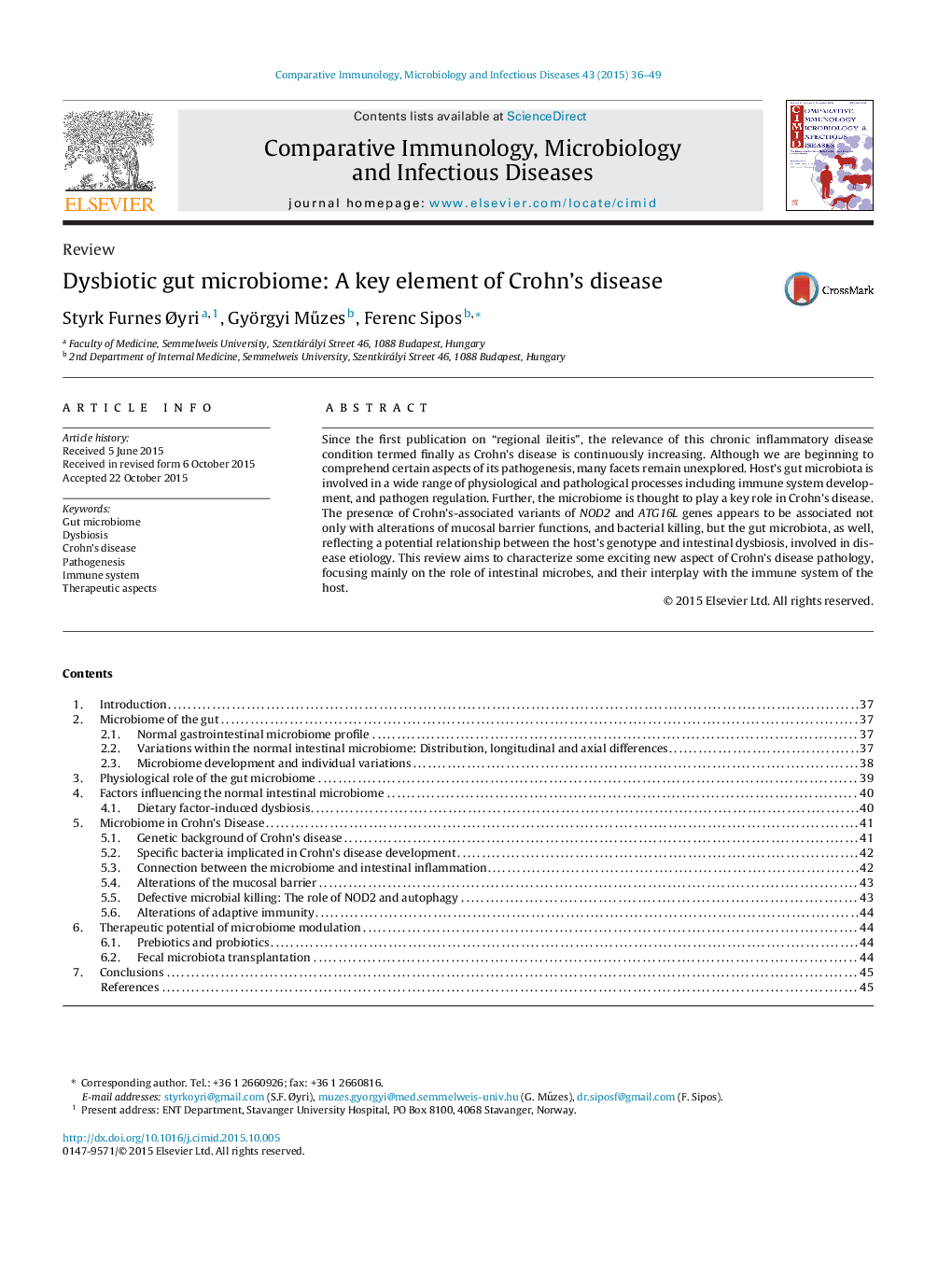| Article ID | Journal | Published Year | Pages | File Type |
|---|---|---|---|---|
| 2428182 | Comparative Immunology, Microbiology and Infectious Diseases | 2015 | 14 Pages |
•Many aspects of the human immune system seem to be associated with the gut microbiome.•Impaired bacterial sensing and handling are initial steps in Crohn's pathology.•Presence of NOD2/ATG16L genotypes is associated with alterations of Crohn's microbiome.•Relationship may exist between the host genotype and intestinal dysbiosis.•Initial findings regarding therapeutic microbiome modulation are promising.
Since the first publication on “regional ileitis”, the relevance of this chronic inflammatory disease condition termed finally as Crohn's disease is continuously increasing. Although we are beginning to comprehend certain aspects of its pathogenesis, many facets remain unexplored. Host's gut microbiota is involved in a wide range of physiological and pathological processes including immune system development, and pathogen regulation. Further, the microbiome is thought to play a key role in Crohn's disease. The presence of Crohn's-associated variants of NOD2 and ATG16L genes appears to be associated not only with alterations of mucosal barrier functions, and bacterial killing, but the gut microbiota, as well, reflecting a potential relationship between the host's genotype and intestinal dysbiosis, involved in disease etiology. This review aims to characterize some exciting new aspect of Crohn's disease pathology, focusing mainly on the role of intestinal microbes, and their interplay with the immune system of the host.
